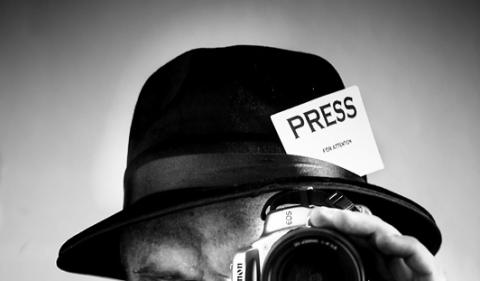Holier than thou? That's not enough

Journalists spend an awful lot of time demanding better of others. Perhaps it's time they did the same for themselves. By Vincent Browne.
Over the last several weeks in Britain, the Leveson Inquiry, chaired by Judge Brian Leveson, has heard evidence of grotesque media intrusion into the private lives of individuals.
Anguished excerpts from the diary of Kate McCann - mother of Madeleine McCann, who went missing in Portugal in May 2007 - were published in the News of the World. The other children of the McCann family were subjected to terrifying harassment by photographers.
Harry Potter author JK Rowling told how she and her children were besieged by photographers, and how the Sun newspaper claimed a copy of one of her books obtained before publication had been found by a "gentleman . . . in a field". She said the attitude of the media seemed to be: "You're famous, you're asking for it."
A string of actors and actresses told how they came to realise their phones had been hacked, how attempts had been made to "blag" them and/or associates ("blagging" is pretending to be someone else, usually a public official, to obtain private information).
Claims were made that the media had hacked into computers or paid people to do so; that private detectives were engaged to pry into individuals' private lives; that a criminal industry had been created in a frenzied media environment, where the old conventions of journalism were ignored for the pursuit of profits and share price enhancement.
Not all newspapers were caught in that whirlwind, but many were, both within and outside the Murdoch domain. It is not believable that similar practices were not imported here - not yet on the same scale, but of the same insidiousness, with standards disregarded in the frantic pursuit of sales and ratings.
I was on the Dublin newspaper scene when I think that started in the mid-1970s. Amid promises of more investment, editorial jobs were cut, corners were cut and editors not reaching sales targets were fired. Later, privacies were invaded, and the fine - but once clear - line between editorial and advertising was blurred.
During a protracted period, a photograph of Michael Fingleton appeared in one of the newspapers on a weekly basis, without any perceptible editorial justification. Reputations of targeted individuals were damaged. They were targeted because the individuals were either competitors, corporate media owners or just annoyances.
In the last decade or so, standards have dipped further, coinciding with the larger presence in the newspaper market here of Irish editions of British titles.
The culture of the British newspaper media has been fully absorbed here, without any apparent apprehension by the journalists' profession about what is going on.
Barristers are required to participate in continuous development programmes to encourage them to keep up with developments in law and legal procedures, and to think about ethical issues to do with the profession (yes, we know, barristers with ethics is an oxymoron). Ditto solicitors. So too, I understand, with medical practitioners and dentists - and I'm sure other professions too.
A colleague asked last week whether there was any similar requirement in the journalistic profession. The answer is no. Journalism is not a profession that requires a qualification. And there are no ethical standards required - a skills-free and ethics-free zone.
In some media corporations, journalists are encouraged to fabricate stories - or, at least, they are not discouraged from doing so. One newspaper published in Ireland regularly makes up stories, yet never has a journalist been fired on that account (or, as far as I know, sanctioned, except when this results in libel damages). Journalists regularly invade the privacy of people without any legitimate justification for doing so, other than the titillation of readers, the financial gain of the corporations that employ them and the self-gratification of the journalist.
There used to be a convention in journalism which ordained that at least two independent sources had to back up any assertion of fact, where the origin of the story was not declared. That is now a distant memory.
It also used to be that journalists owed loyalty only to the reader/listener/viewer, not to a source or the corporation to which he or she served. In the reporting of news, editorial comment was avoided, and readers/listeners/viewers were allowed to make their own judgments on the facts, presented dispassionately.
Of course, most of us in journalism - certainly this journalist - have failed to adhere to these elementary principles of journalism from time to time, but at least we used to acknowledge that we attempted to adhere to them and acknowledged our error in failing to do so. There was also a confraternity in journalism, whereby people would argue about these matters, because they thought the issues were important. No more.
We rant about other professions: standards applying to bishops and priests, to lawyers, accountants, bankers, politicians, public servants and standards applying in the medical and legal professions. But we never consider standards in our own profession.
In part, this is because of the 'holier than thou' presumption, in part because of the inevitability of retaliation, in part because of an appreciation of personal failures and compromises. But that isn't enough.
We demand more of others. We must demand the same of ourselves.
Image top: Manin the Moon.
